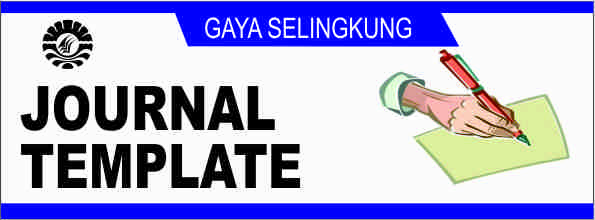The Determinant Factors in the Policy Formulation Process for the Regional Revenue and Expenditure Budget
(1) Institut Teknologi Kesehatan dan Sains Muhammadiyah Sidrap, Indonesia
(2) Institut Teknologi Kesehatan dan Sains Muhammadiyah Sidrap, Indonesia
(*) Corresponding Author
DOI: https://doi.org/10.26858/jo.v8i2.44607
Abstract
The new paradigm for implementing regional autonomy in Indonesia is basically based on the principles of local democracy and good governance. With this basis, the regional government and the Regional People's Representative Council as local institutions are responsible for the implementation of regional autonomy as a manifestation of local community representation. The shift of power from the center to the regions and the empowerment of the Regional People's Legislative Assembly has formed its own dynamics in the interaction relations of the two institutions so that it is often colored by conflicts that have political compromises in the process of formulating and discussing the General Policy on Budgets-Priorities of Budget Ceilings and Draft Regional Revenue and Expenditure Budgets. . Therefore the formulation of the problem in this study is: What are the determinant factors in the policy formulation process for the 2019 Regional Budget for Fiscal Year in Sidenreng Rappang Regency?. This study aims to: Know the determinant factors in the policy formulation process of the Regional Revenue and Expenditure Budget for the 2019 Fiscal Year in Sidenreng Rappang Regency. This study used a qualitative approach with data collection techniques through in-depth interviews and documentation studies. The results of the study show that the determinant factors in the policy formulation process for the Regional Revenue and Expenditure Budget for the 2019 Fiscal Year are: (a) Political factors, (b) the interest of policy-making actors, (c) Capacity factors of policy-making actors, (d) Organizational experience factors of formulating actors and (e) Bargaining of policy formulating actors.
Keywords
Full Text:
PDFReferences
Anderson, E. J. (1984). Publik Policy – Making (Holt, Rinehart, & Winston (eds.); 3rd Editio). New York Press.
Dye, T. R. (1978). Understanding Public Policy. Prentice Hall Inc.
Fadil, F. (2013). Partisipasi Masyarakat dalam Musyawarah Perencanaan Pembangunan di Kelurahan Kotabaru Tengah. Jurnal Ilmu Politik & Pemerintahan Lokal, 2(2).
Hadi, D. W., & Kasuma, G. (2012). Propaganda Orde Baru 1966-1980. Media Verleden, 1(1), 1–109.
Ishak, H. A. F. (2005). Reformasi Paradigma dan Transparansi Keuangan Pemerintah Daerah. Jurnal Borneo Administrator, 1(2).
Kamar, S., & Tinov, M. Y. T. (2013). Hubungan Pemerintah Daerah-DPRD dalam Pembahasan RANPERDA. Jurnal Demokrasi Dan Otonomi Daerah, 11(2), 97–102.
Lindblom, C. (1984). The Policy Making Process (2nd Editio). Yale University.
Mardiasmo. (2004). Akuntansi Sektor Publik. ANDI.
Matdoan, U. (2014). Analisis Tingkat Partisipasi Masyarakat Dalam Proses Perencanaan Pembangunan Di Daerah. BIOSEL (Biology Science and Education): Jurnal Penelitian Science Dan Pendidikan, 3(1), 1–9.
Miles, M. B., Huberman, A. M., & Saldana. (2014). Qualitative Data Analysis (Edisi 3). Amethdos Sourcebook.
Moleong, J. L. (2005). Metode Penelitian Kualitatif. Remaja Rosdakarya.
Nadeak, J., Tarigan, P., Nasution, F. A., & Agusmidah, A. (2014). Pelaksanaan Fungsi Pengawasan Anggota Dewan Perwakilan Rakyat Daerah terhadap Kinerja Eksekutif di Kota Medan. USU Law Journal, 2(1), 211–229.
Sanusi, S. I., & Widyastuti, T. V. (2020). Demokratisasi dalam Rangka Pembangunan Hukum Responsif. Jurnal Ilmu Hukum.
Sugiyono, P. D. (2008). Memahami Penelitian Kualitatif. Alfabeta cv.
Wati, E. P., Aspani, B., & Mulyati, D. (2022). Sistem Lembaga Perwakilan Bikameral Indonesia. Sol Justicia, 5(1), 38–48.
Article Metrics
Abstract view : 115 times | PDF view : 30 timesRefbacks
- There are currently no refbacks.
Copyright (c) 2022 Baharuddin Andang, Sunandar Ali

This work is licensed under a Creative Commons Attribution 4.0 International License.






























 under a
under a